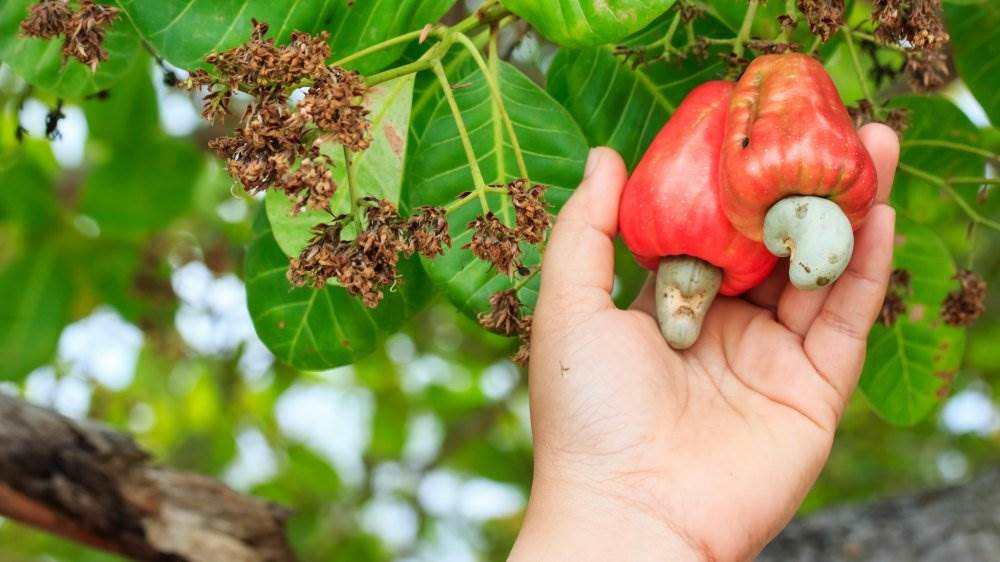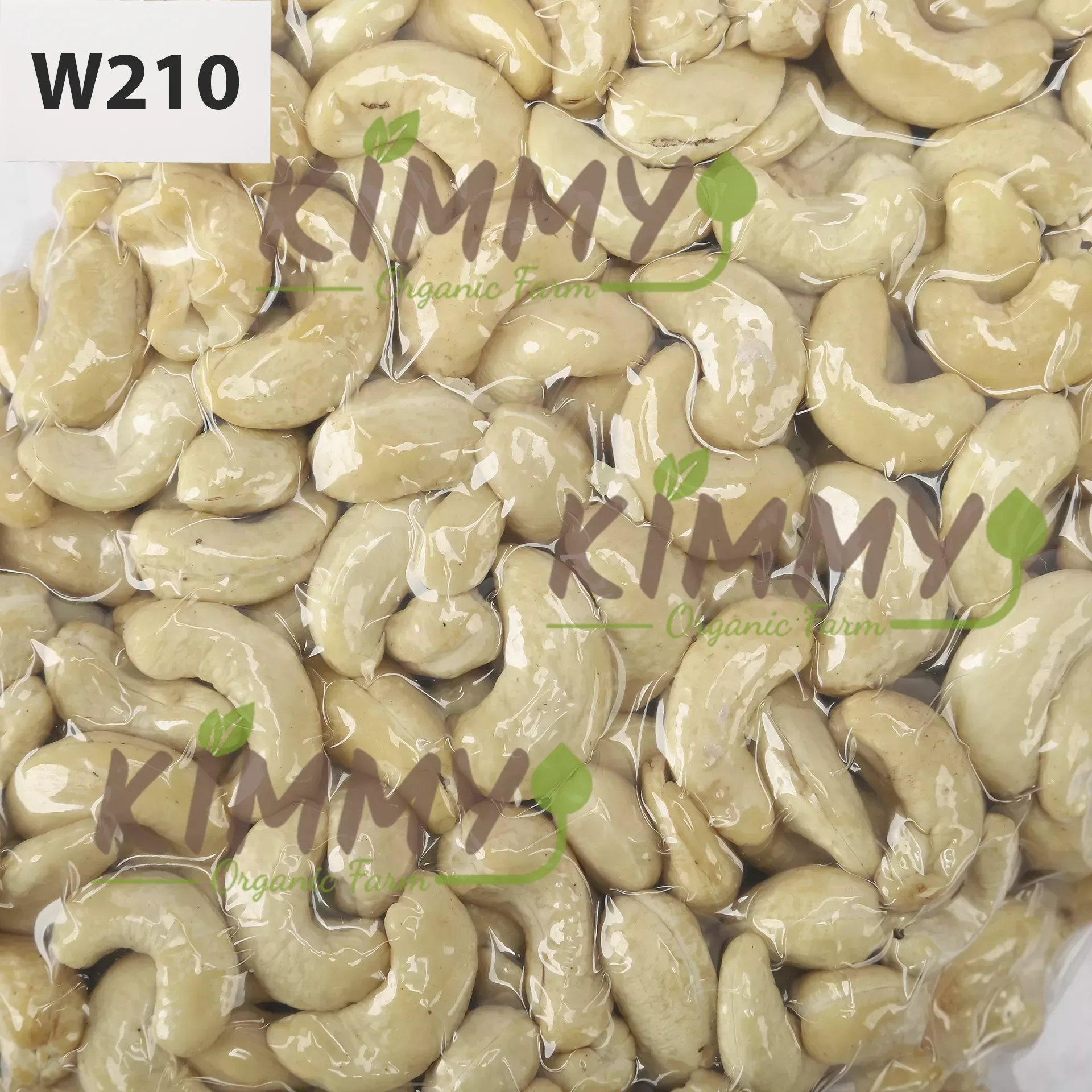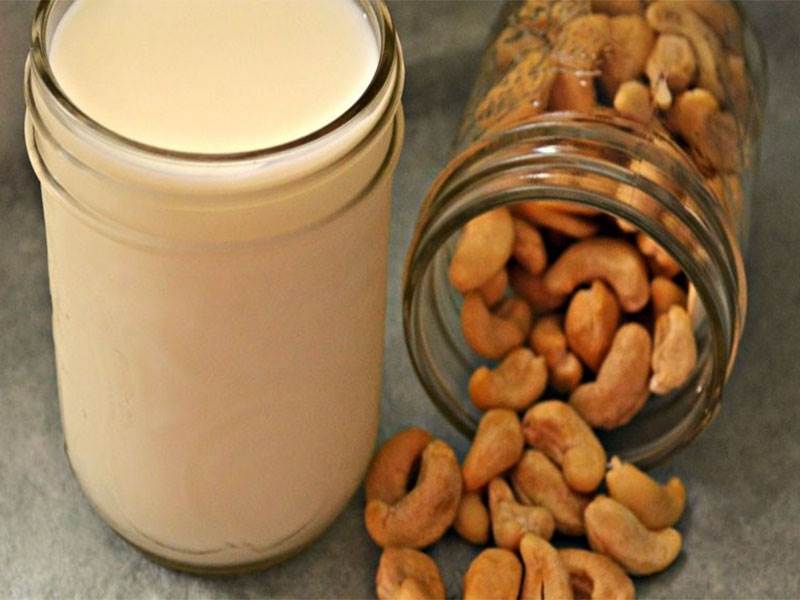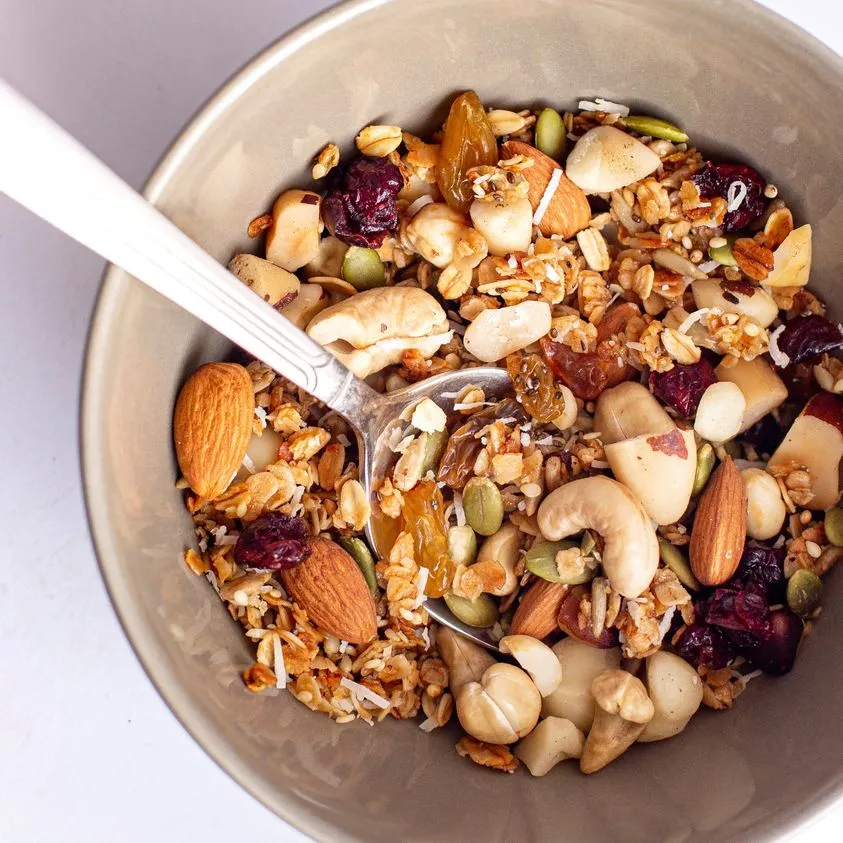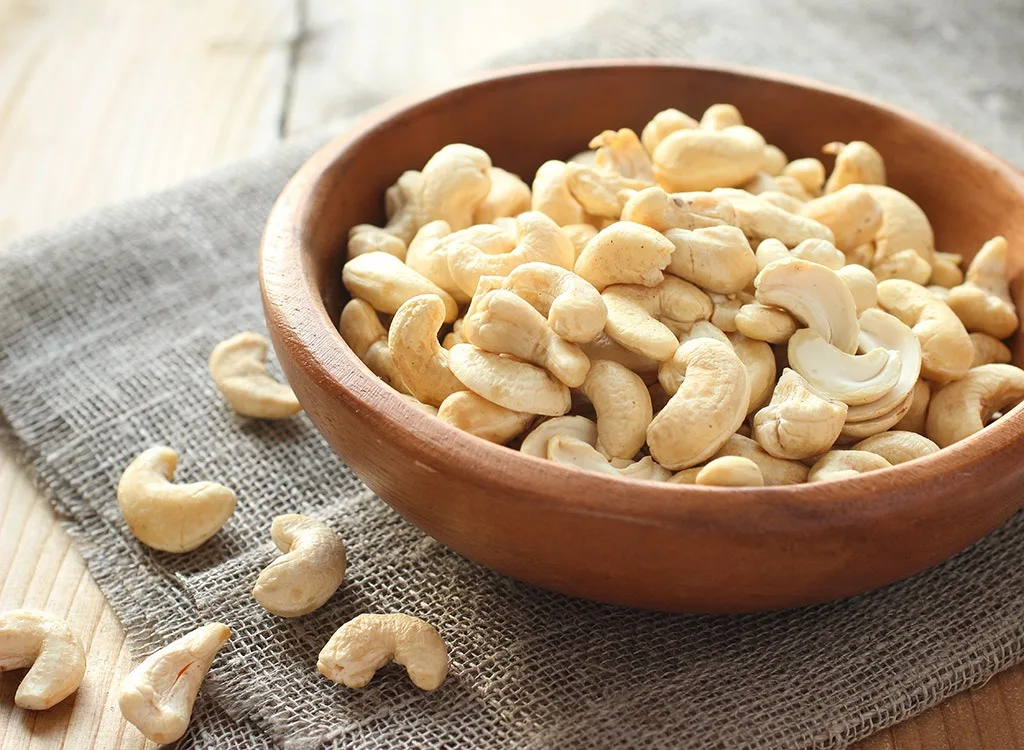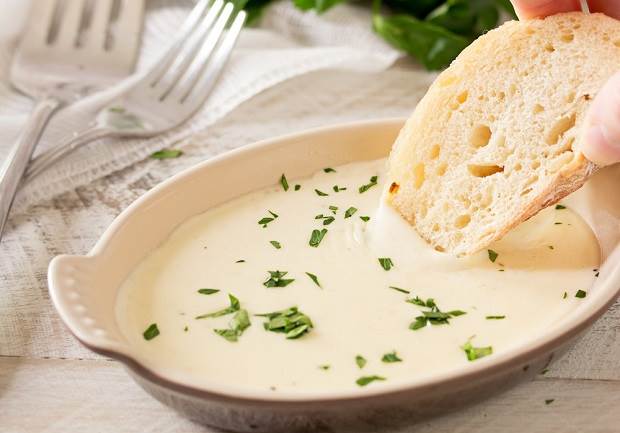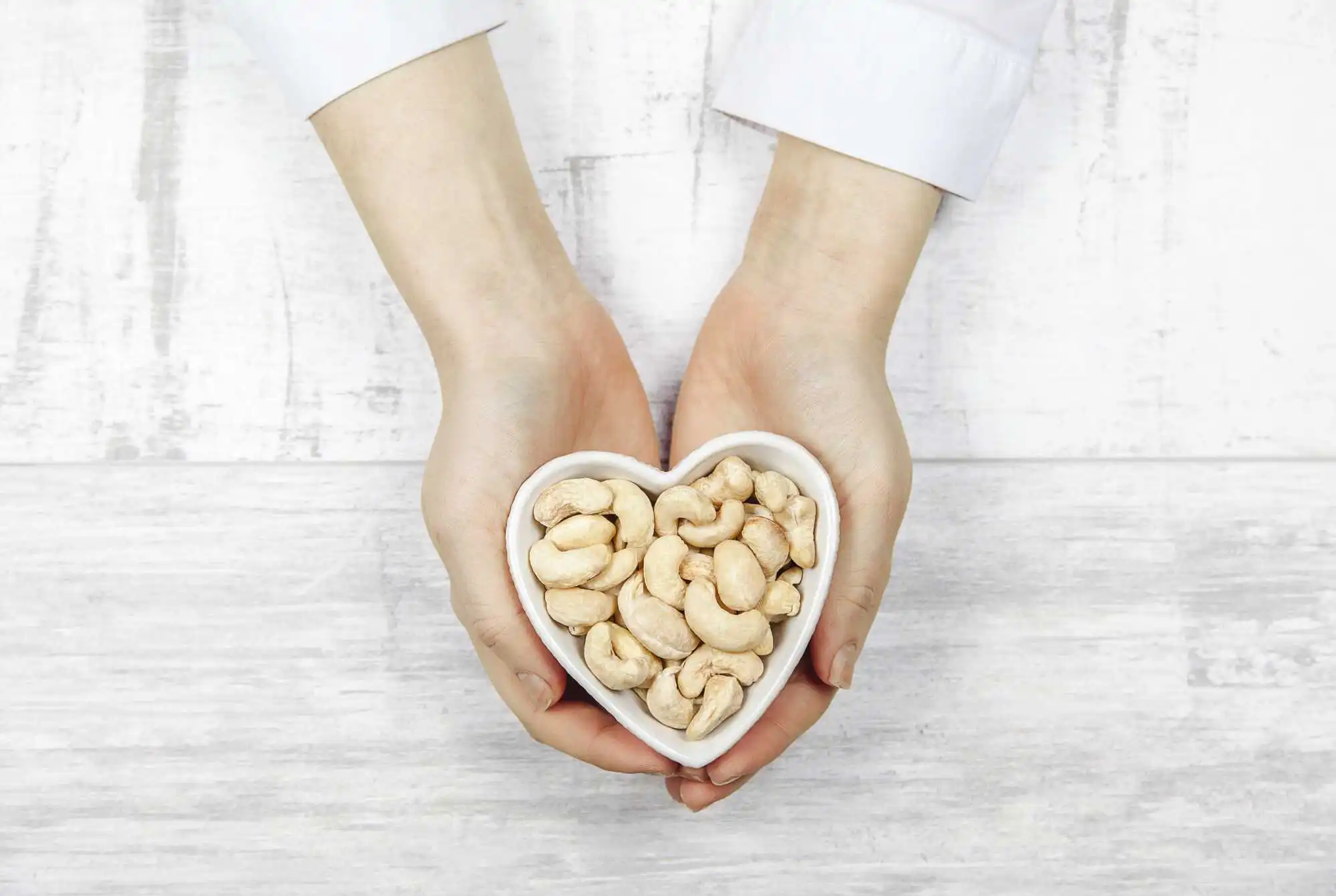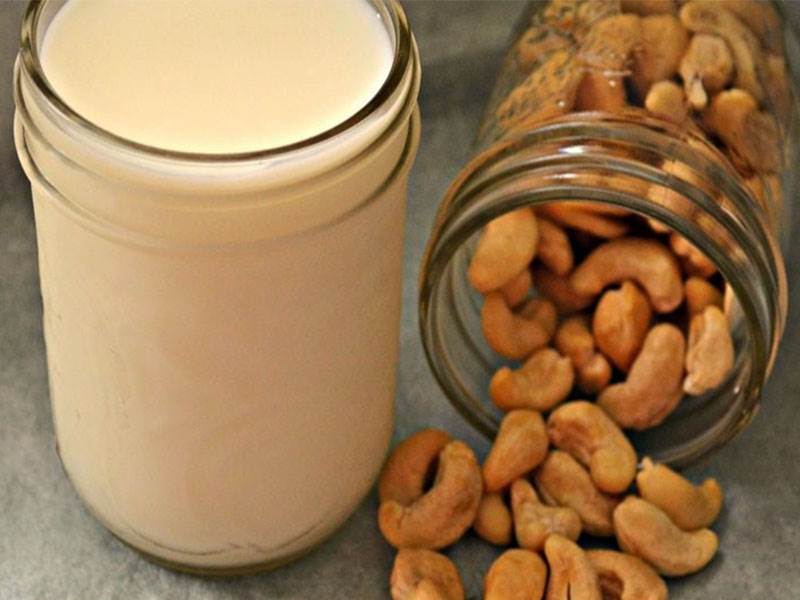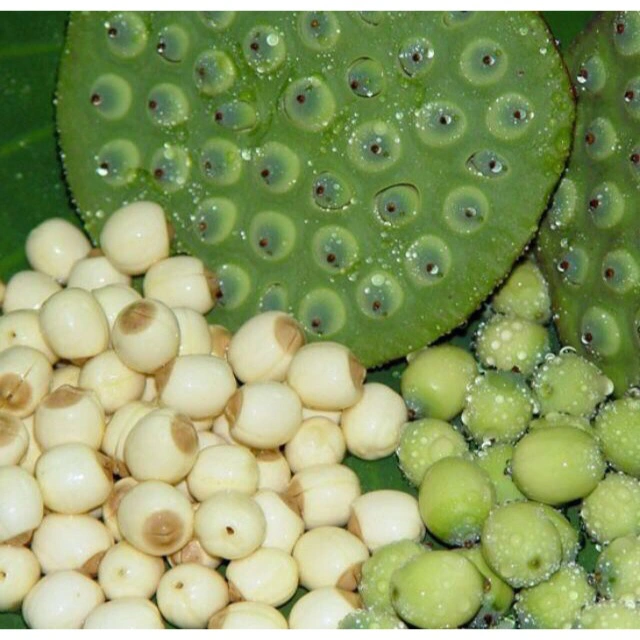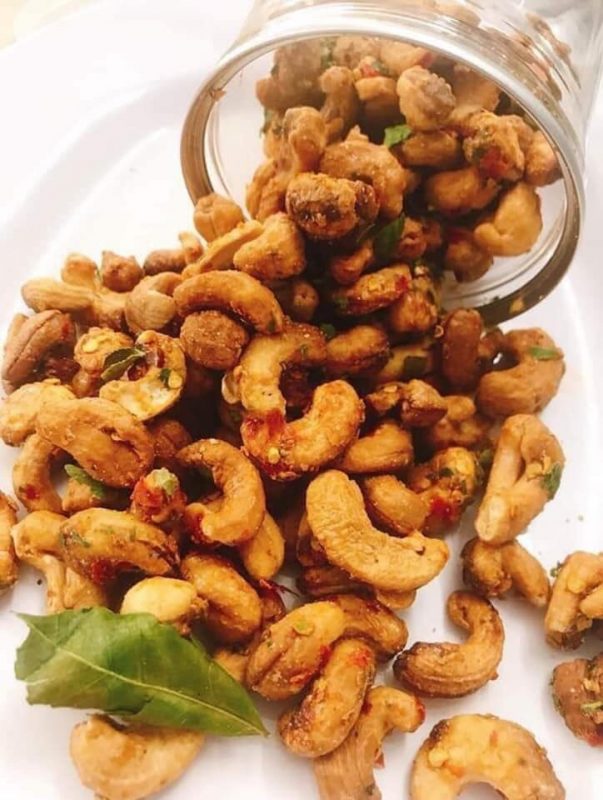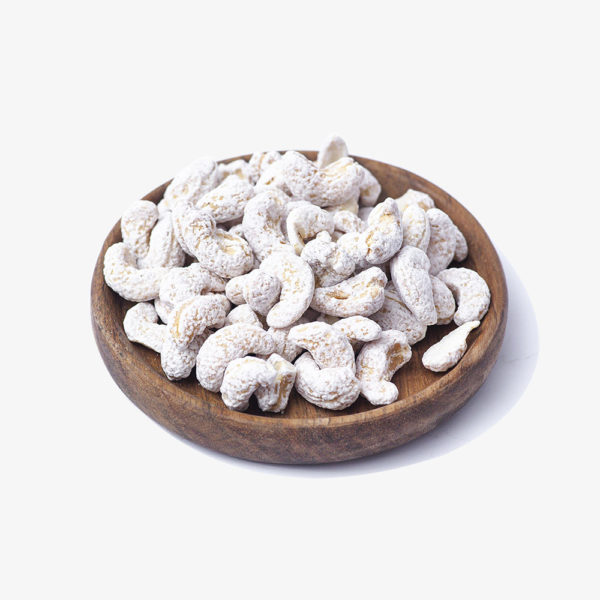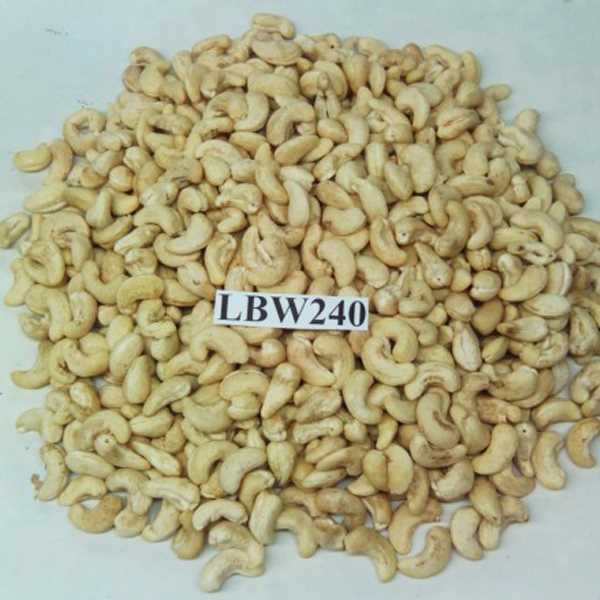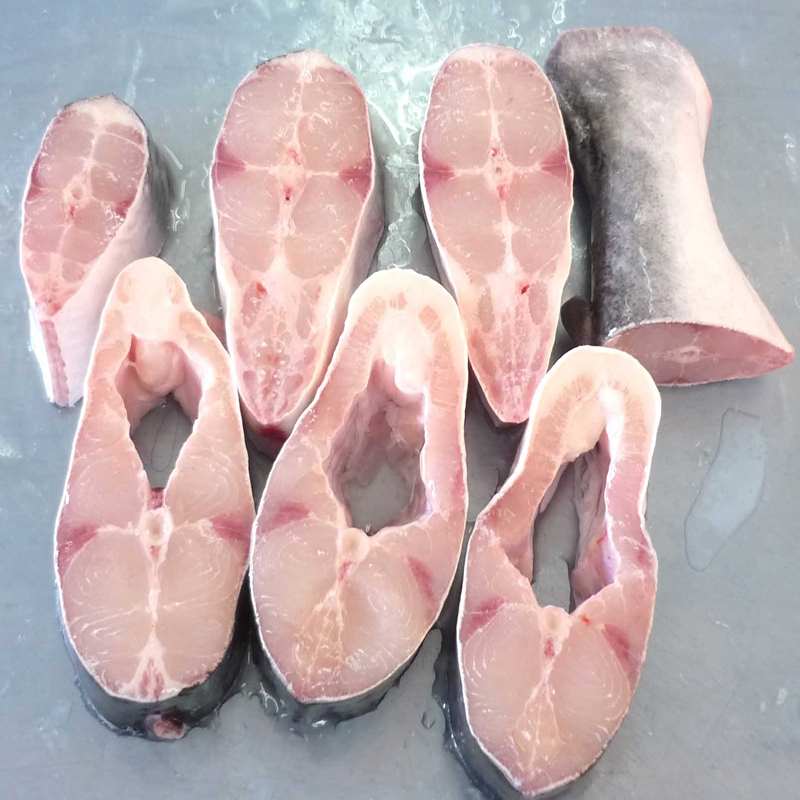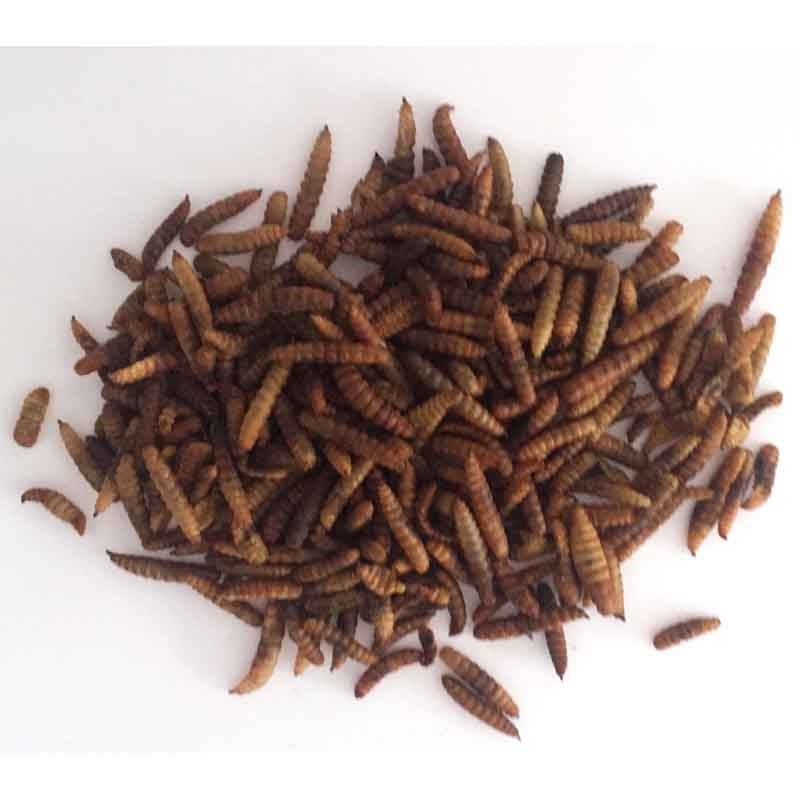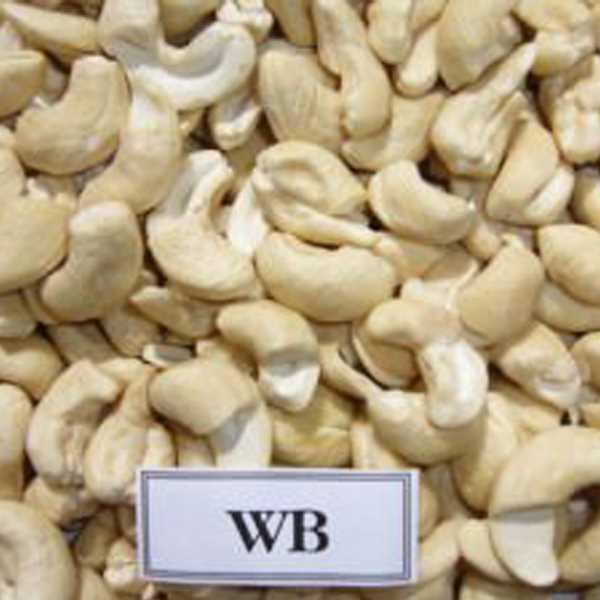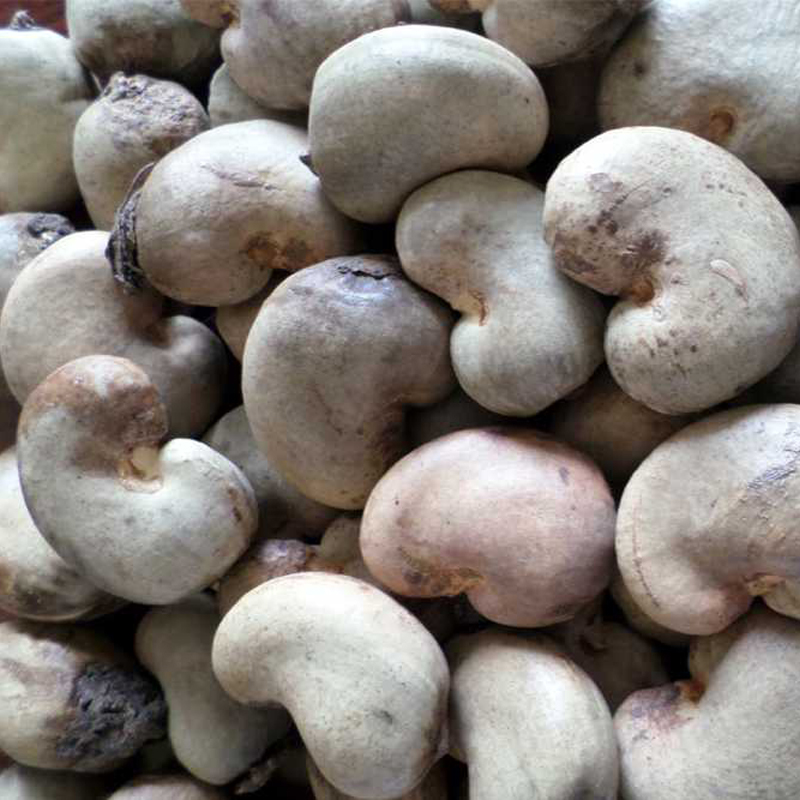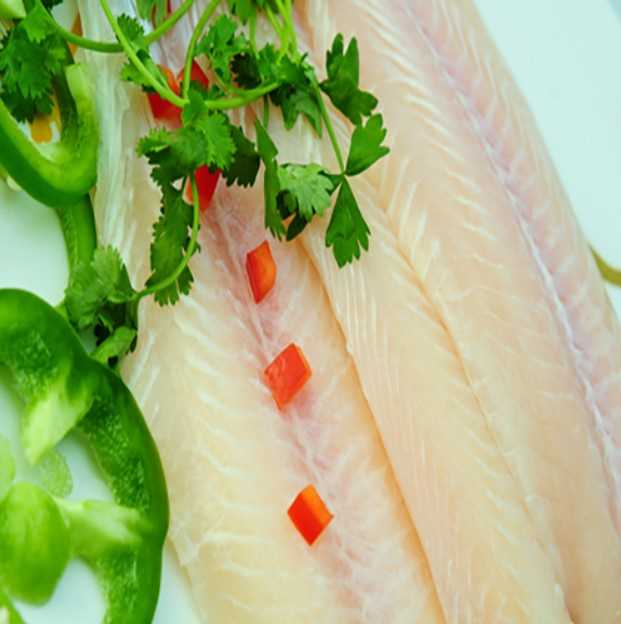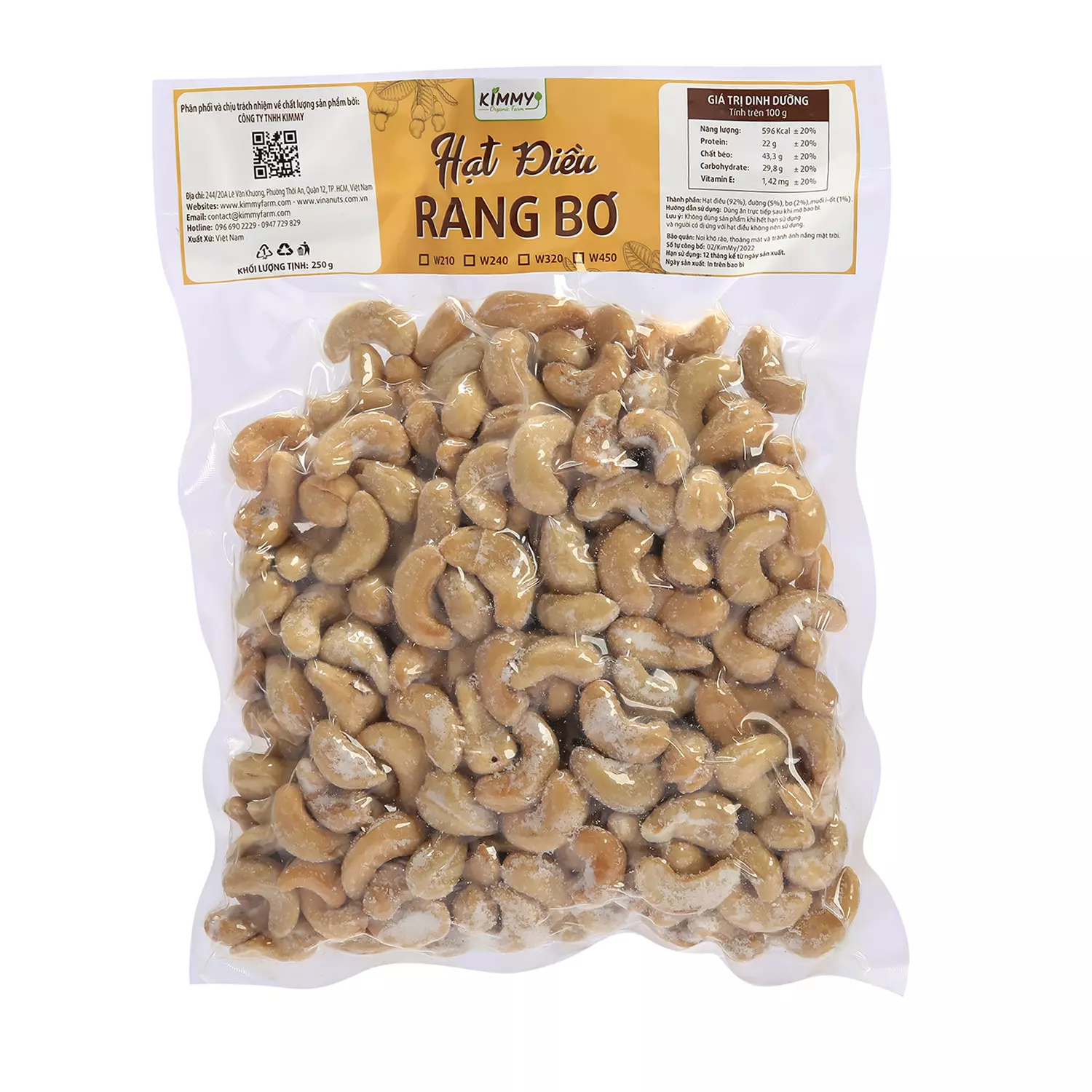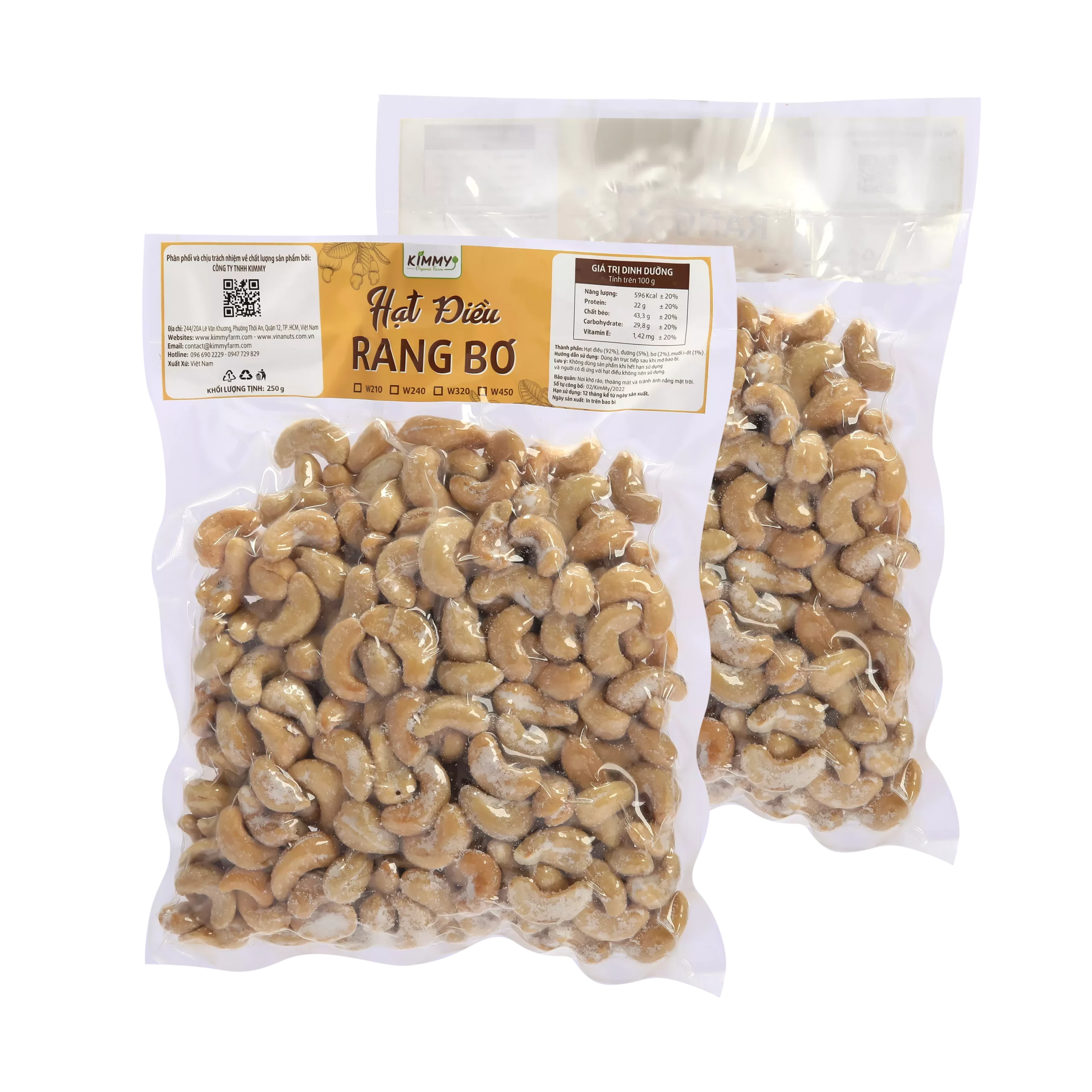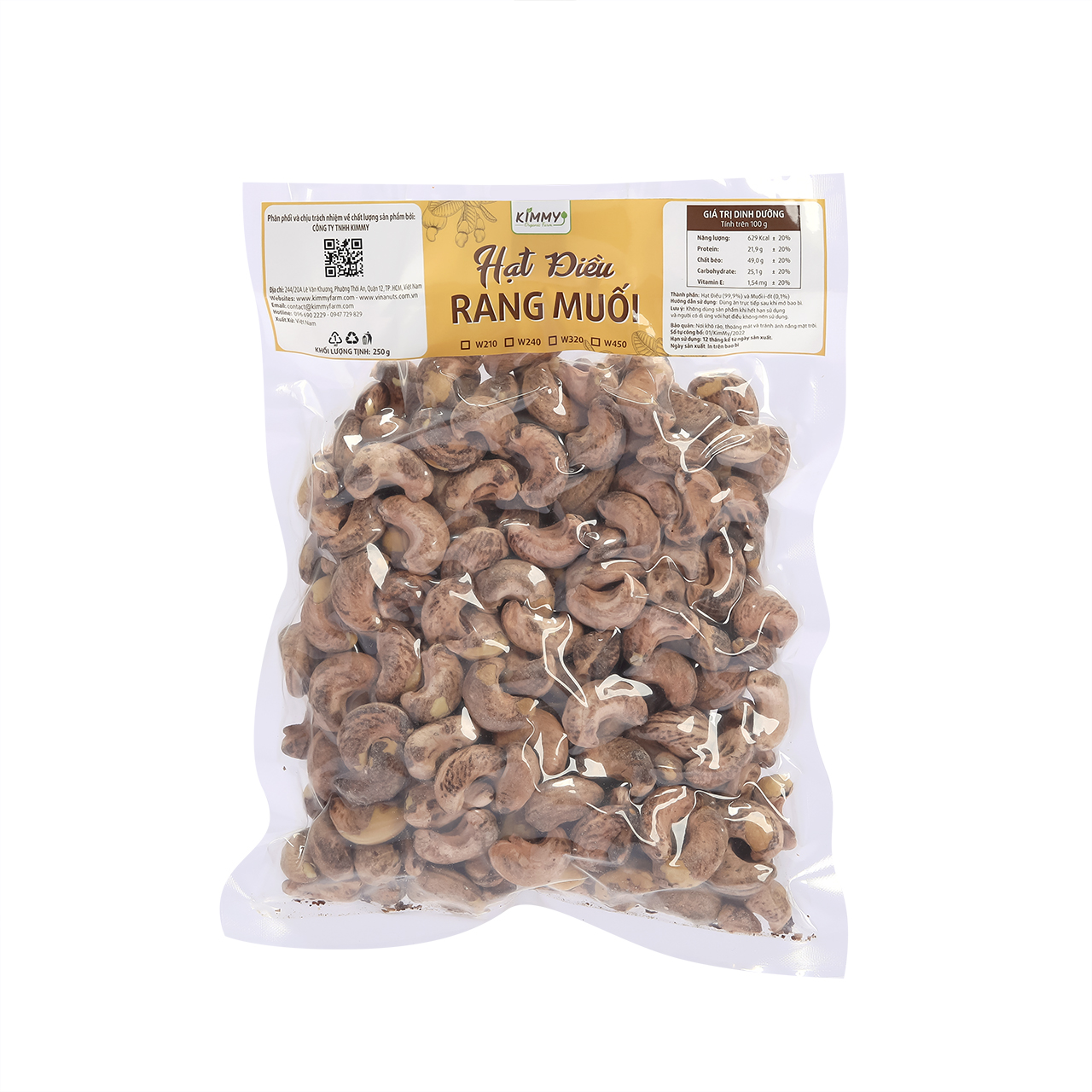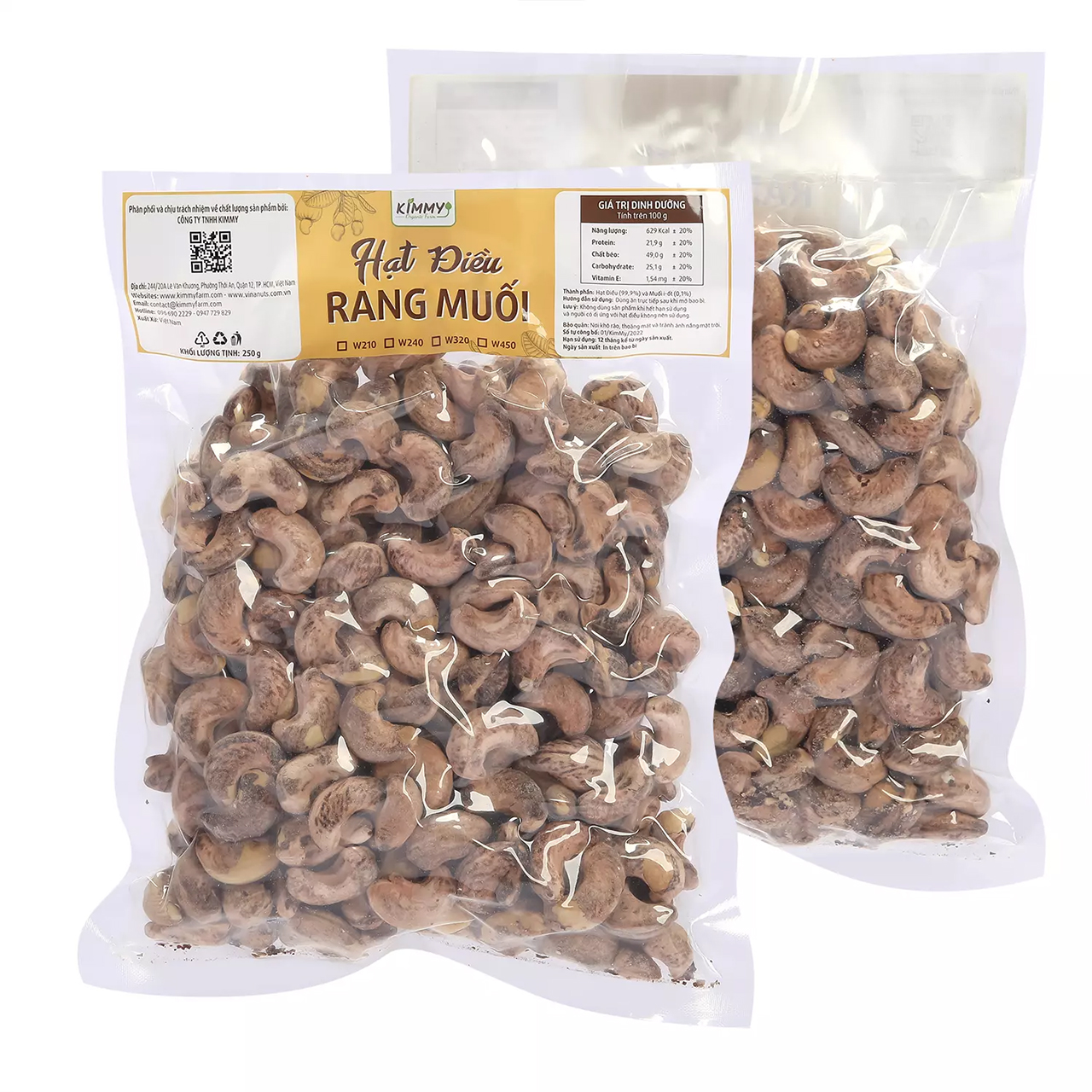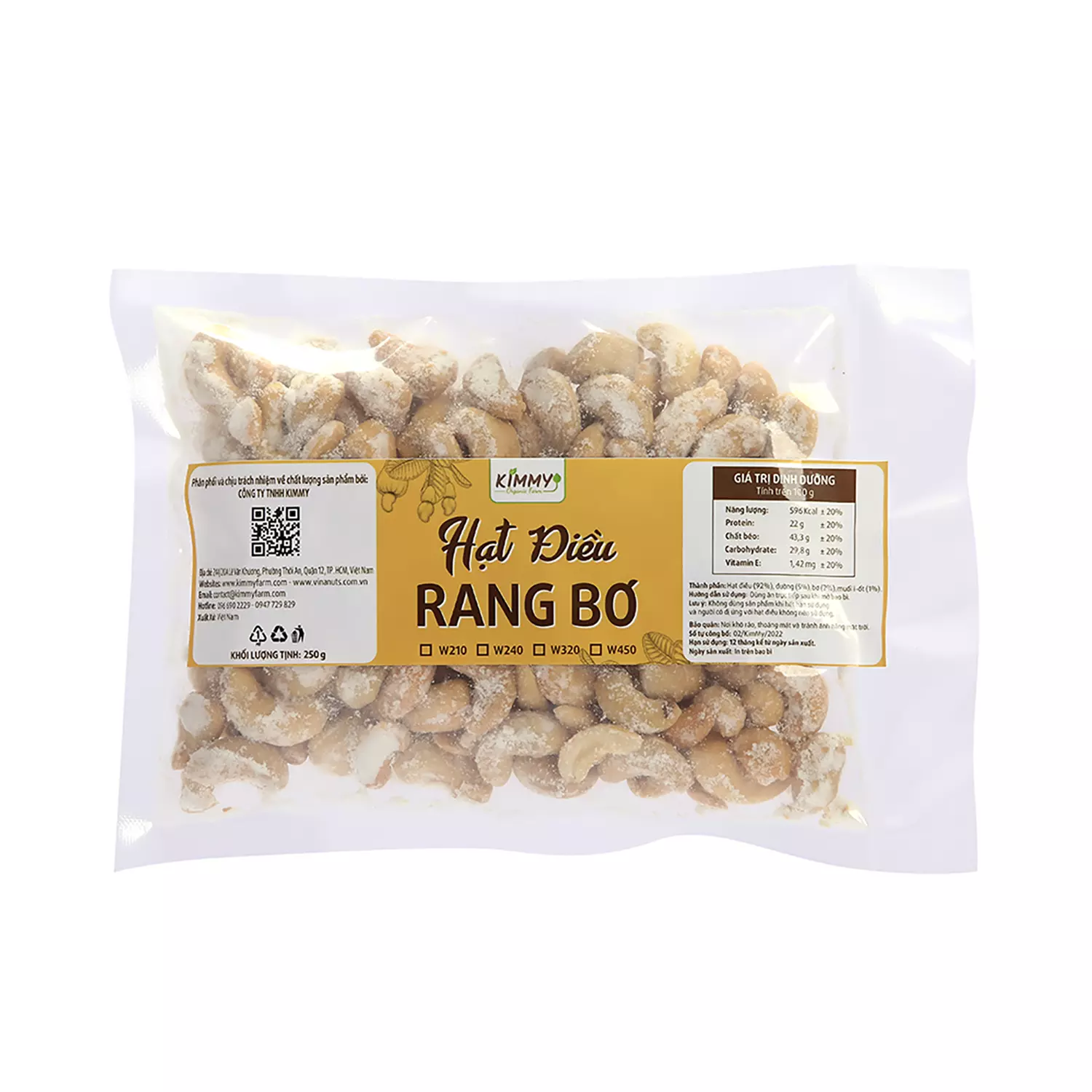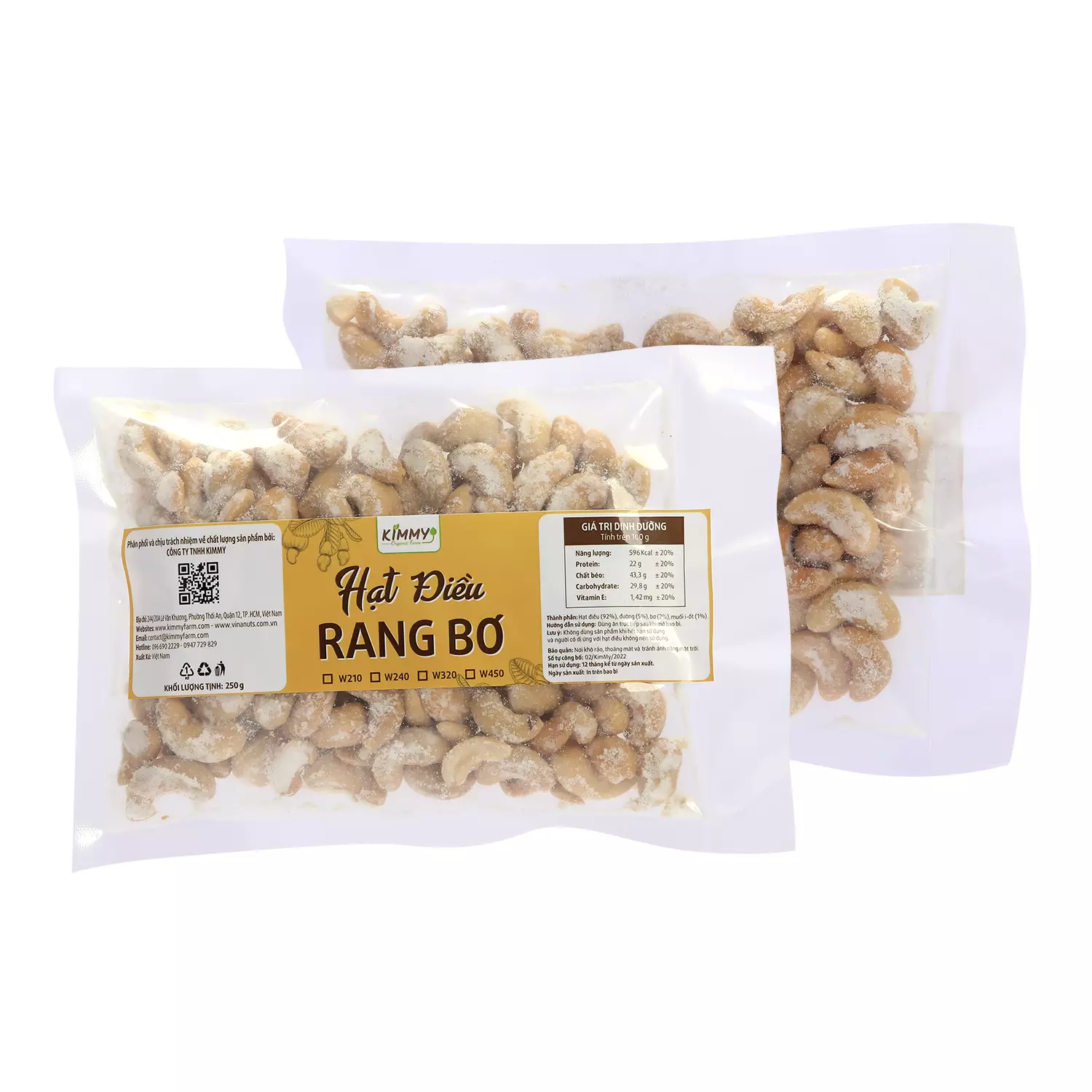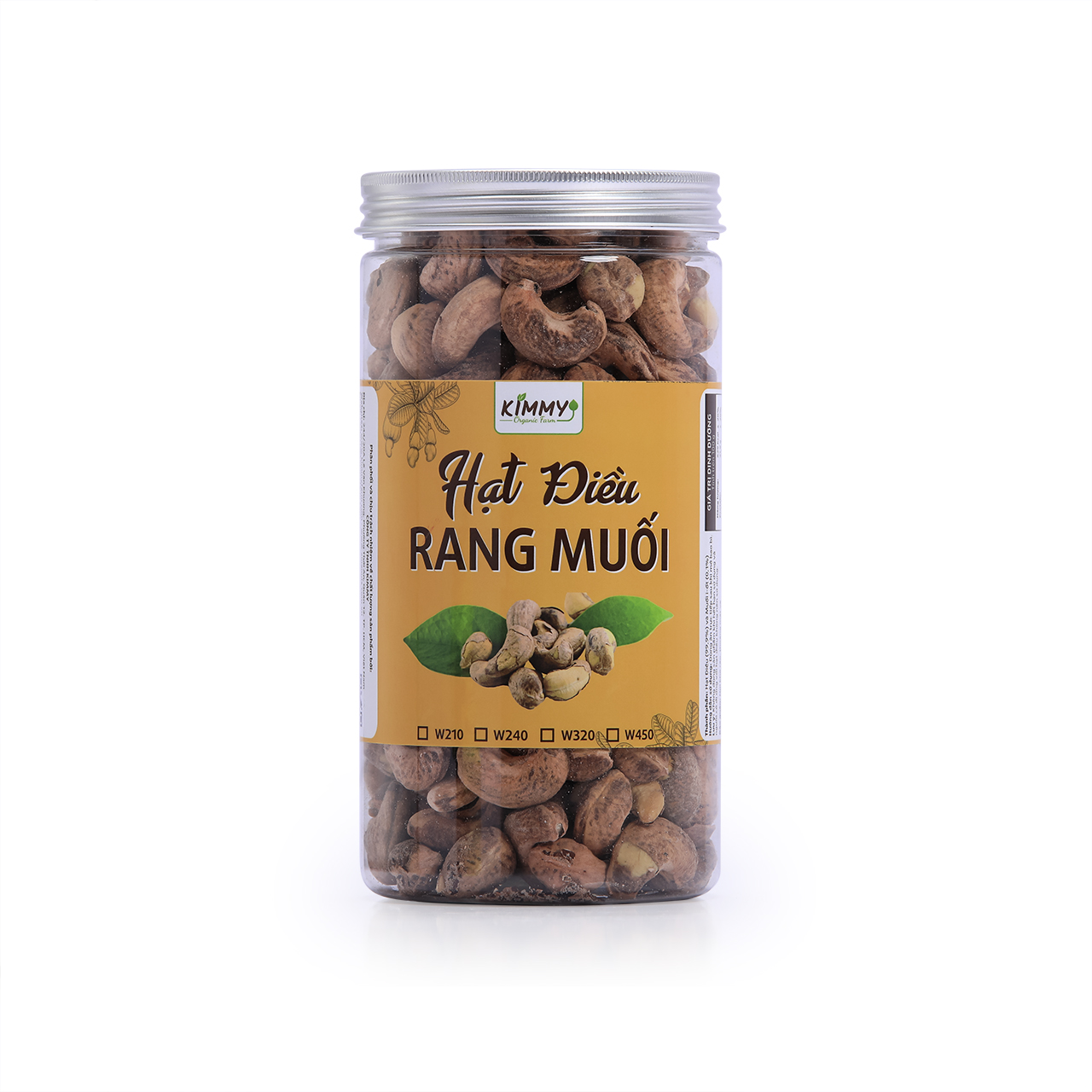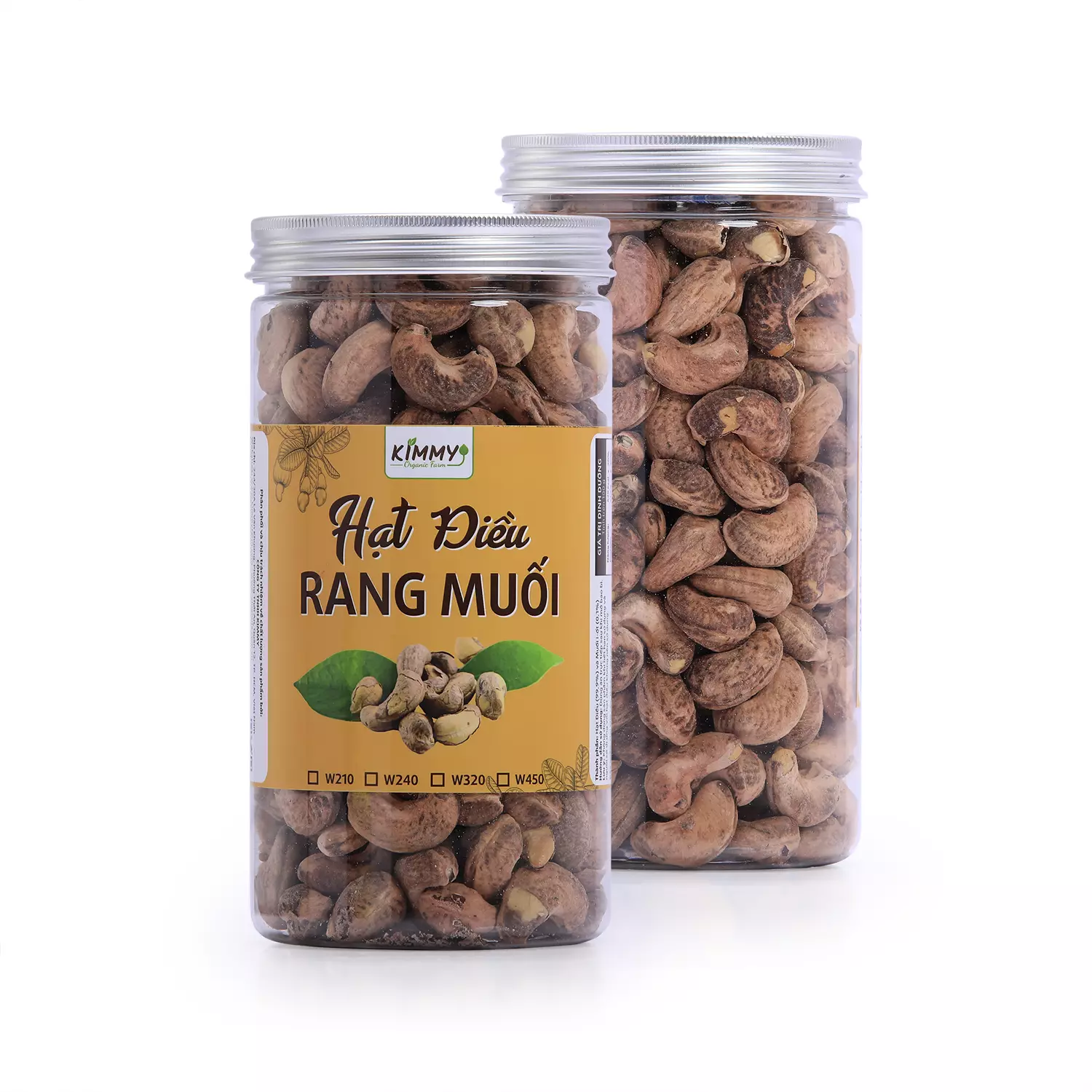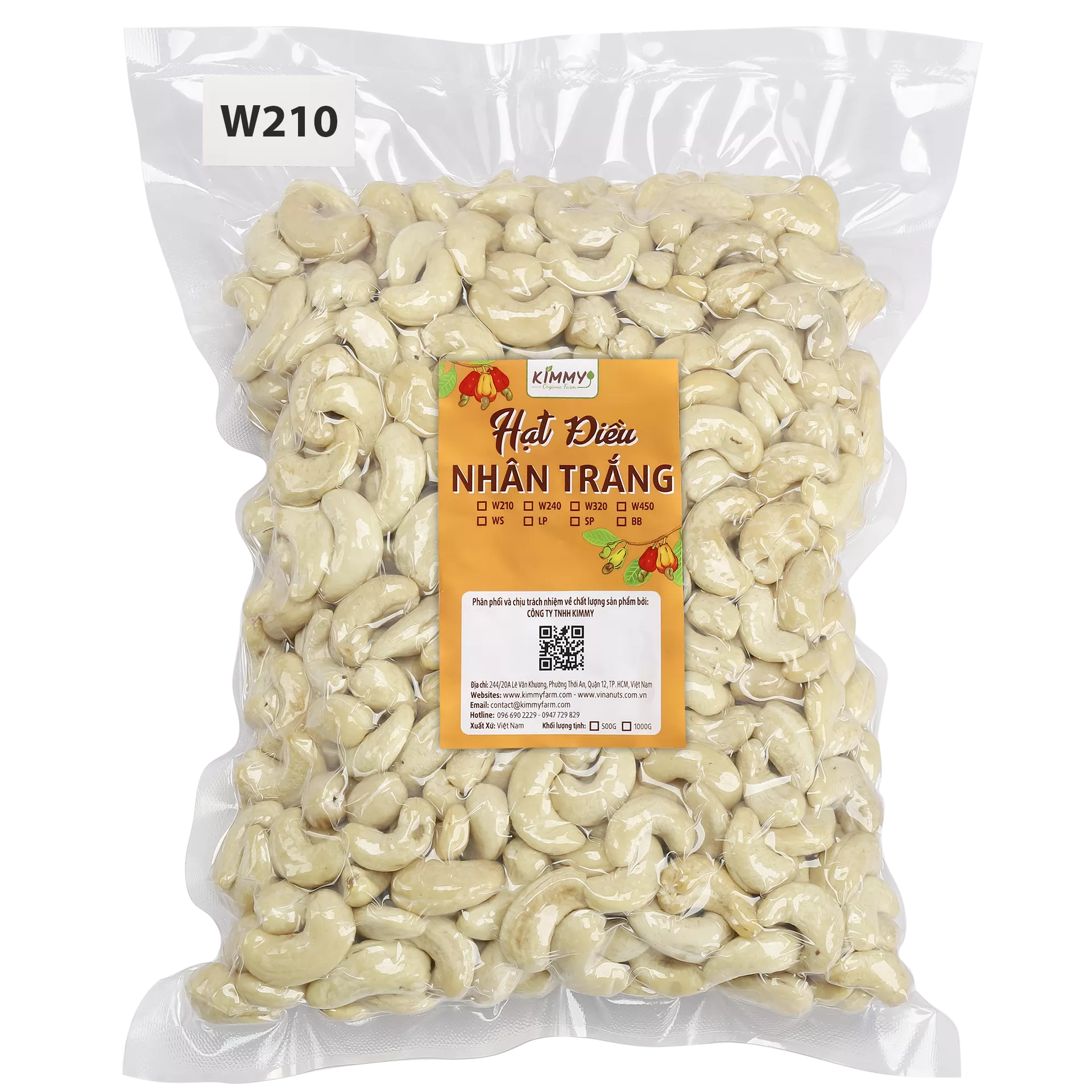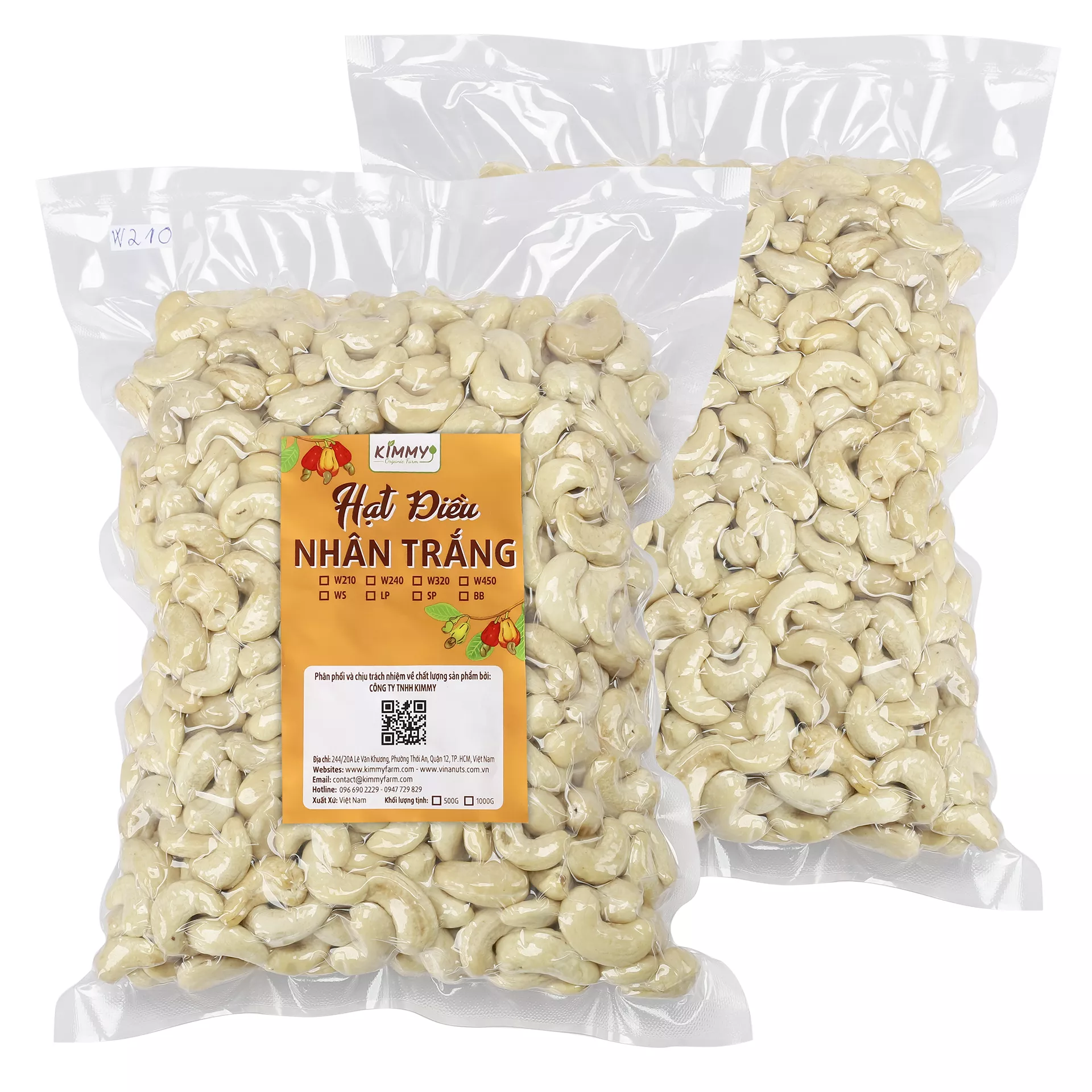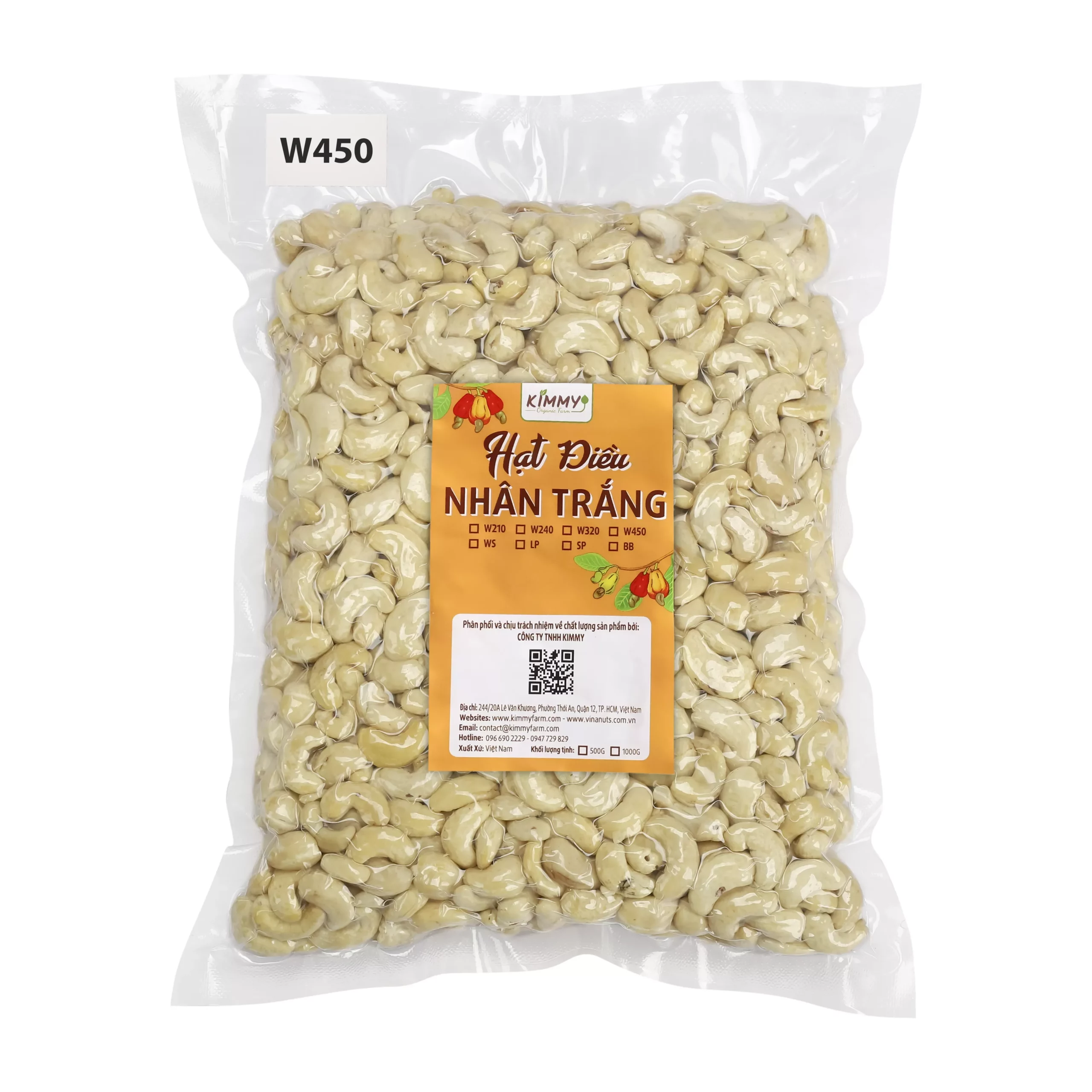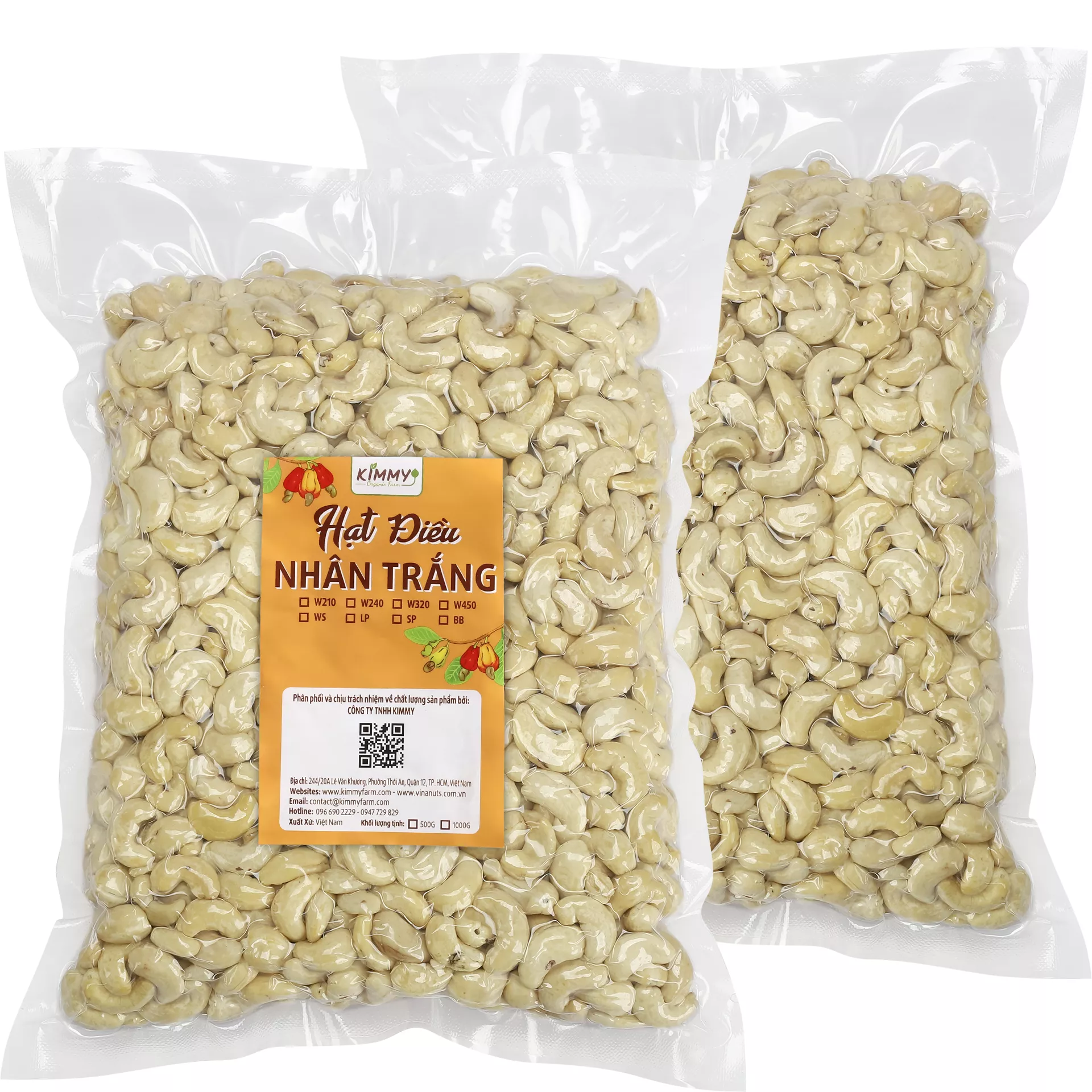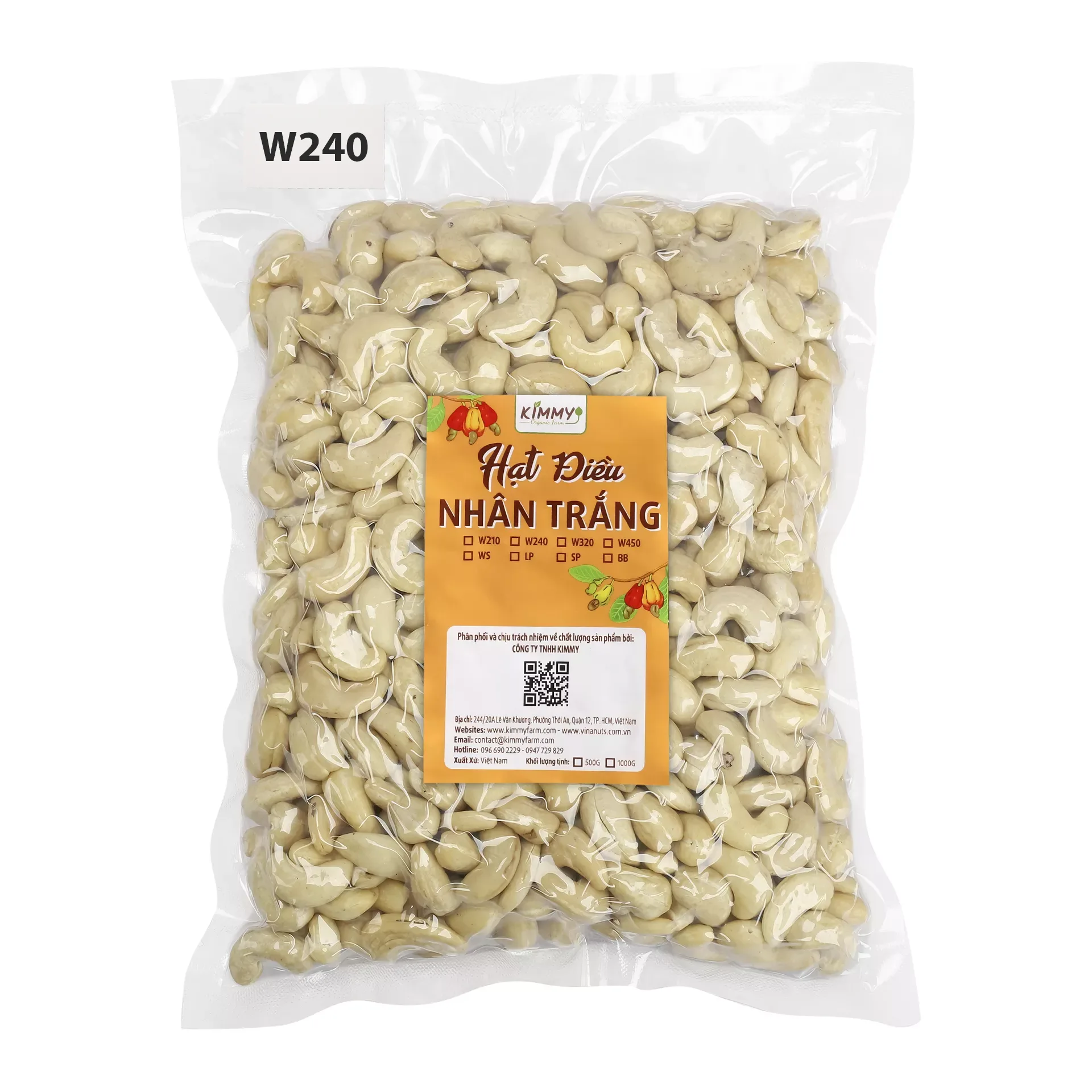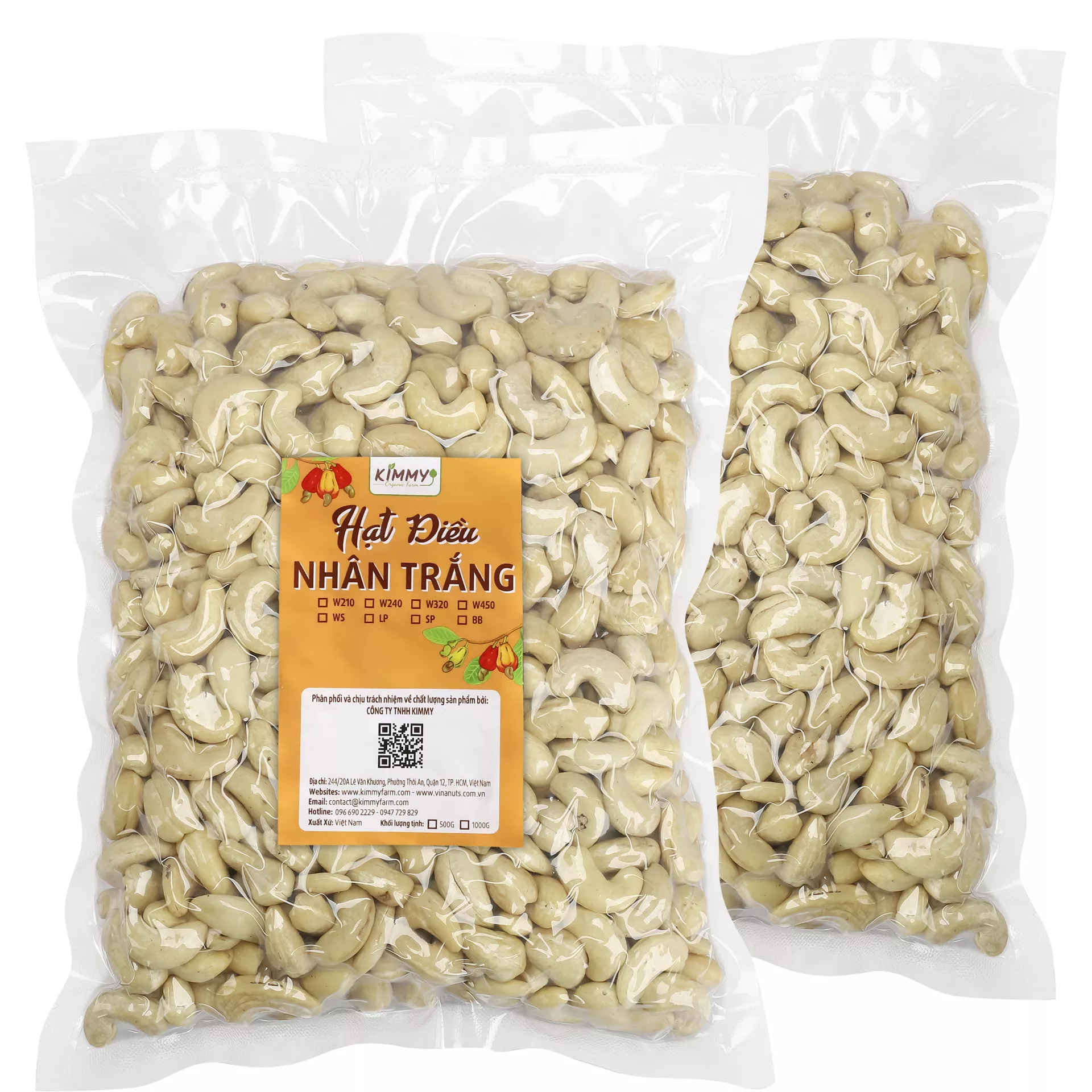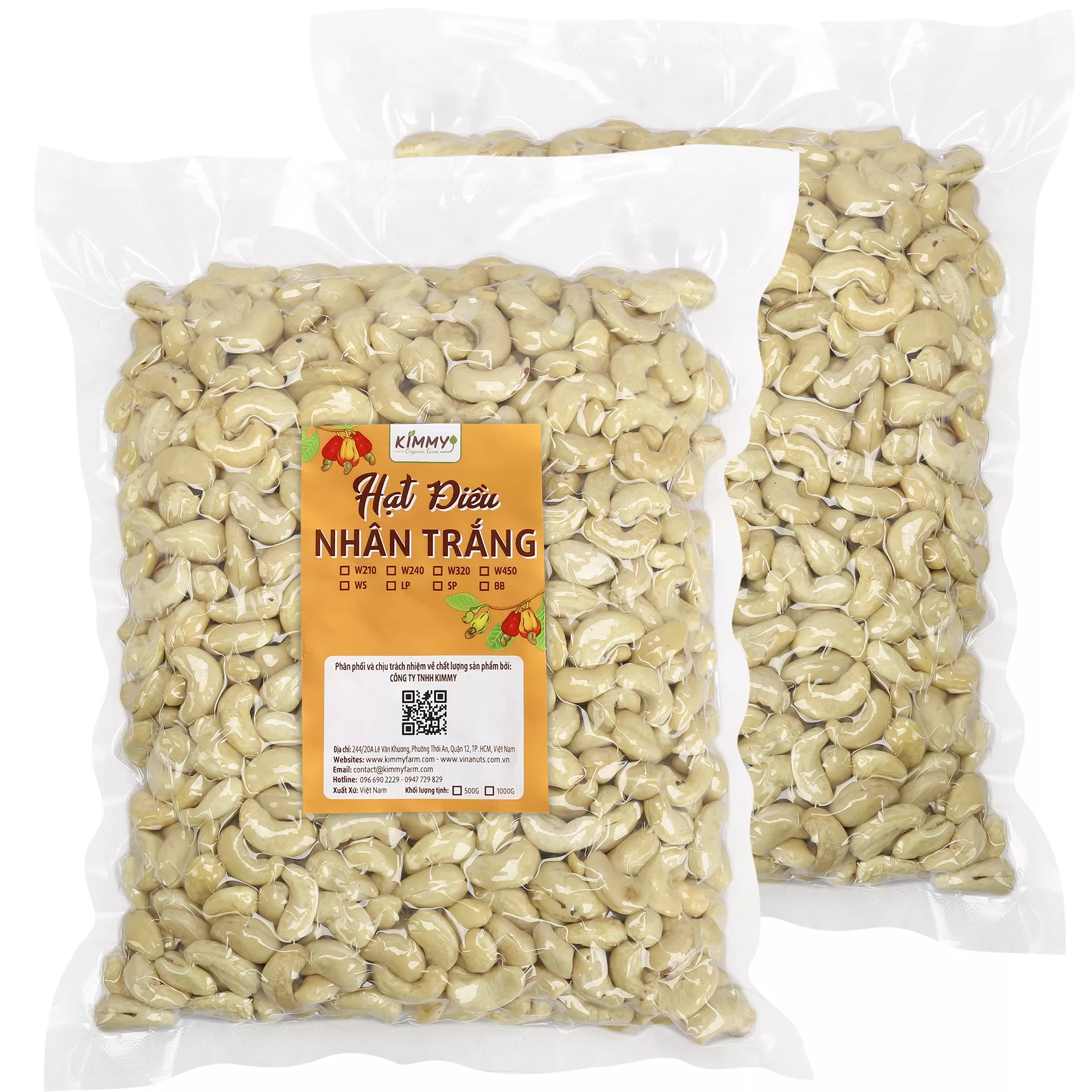Cashew nuts and sunflower seeds are both popular snack options, especially during holidays and festive seasons. Both of them frequently appear in daily diets and are used in various culinary dishes. However, they differ in origin, nutritional value, and usage. In this article, we’ll compare the basic benefits and functions of these two types of nuts to help you make an informed choice. Let’s dive in!
Origin of the Two Types of Nuts
Cashew Nuts:
Cashews originate from tropical regions like Brazil and Mozambique. They are the seeds of the cashew apple and have become a familiar ingredient in global cuisine. Cashews are usually roasted and eaten as snacks or used in recipes such as cashew jam, cashew cookies, and more.
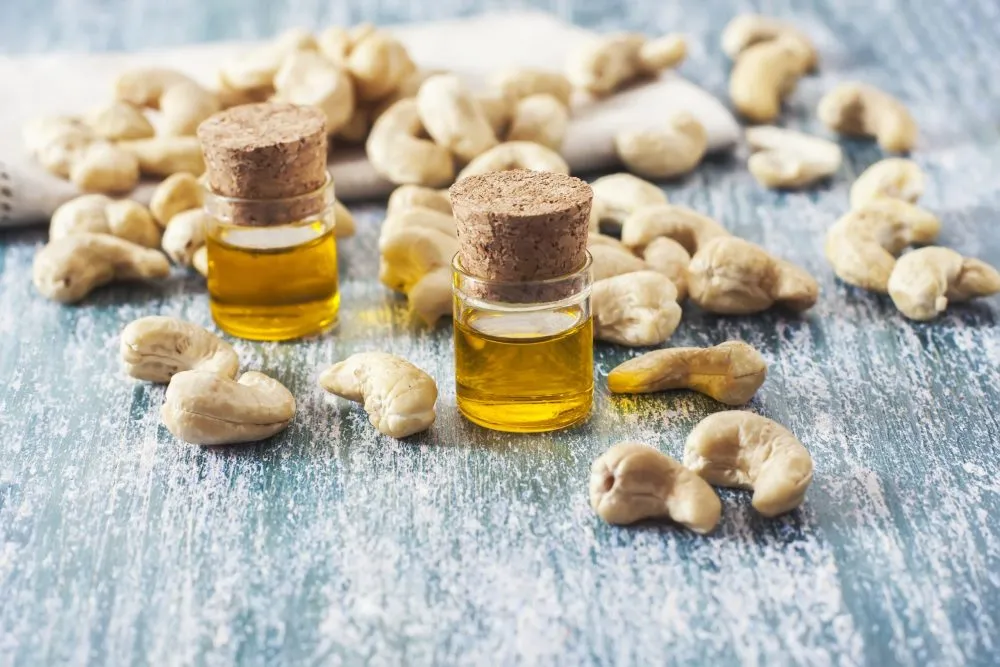
The cashew tree was introduced to Vietnam around the 1980s. Today, it is cultivated in provinces like Đồng Nai, Lâm Đồng, Bình Thuận, and especially Bình Phước – the leading province in Vietnam’s cashew industry.
Sunflower Seeds:
Sunflower seeds come from the sunflower plant (Helianthus annuus), a herbaceous species native to North America. Nowadays, sunflowers are grown all over the world. In Vietnam, provinces like Lào Cai, Lâm Đồng, and Đà Lạt are known for sunflower cultivation. These seeds are harvested year-round and are a popular snack during holidays.
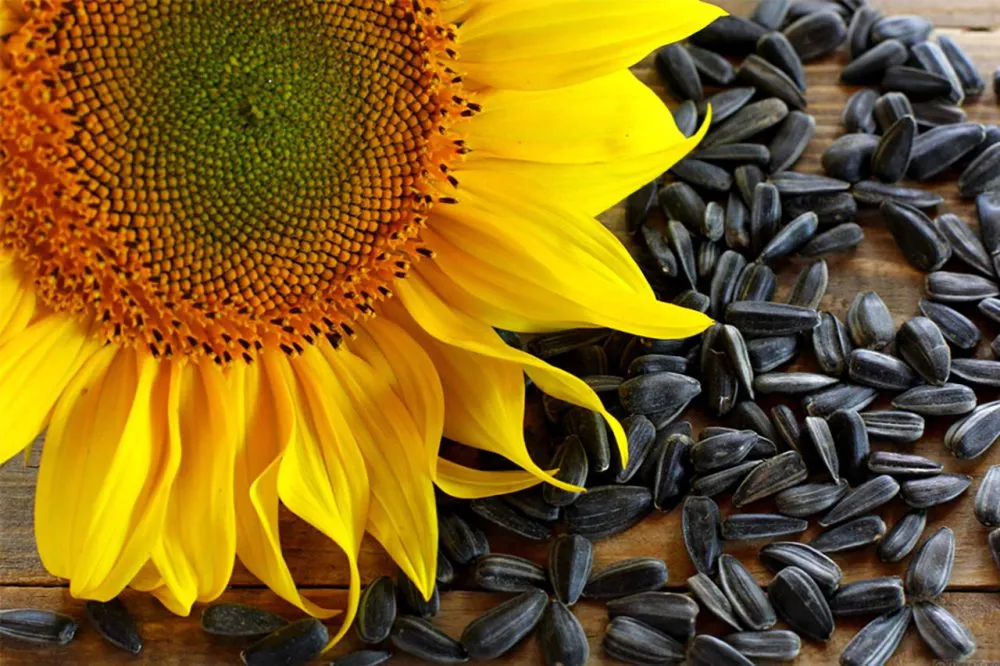
Nutritional Content Comparison
Cashew Nuts (per 100g):
- Calories: 554 kcal
- Carbohydrates: 30.22 g
- Protein: 18.3 g
- Fiber: 3.18 g
- Fat: 48.2 g
- Calcium: 46 mg
- Sodium: 10.5 mg
- Potassium: 540 mg
- Magnesium: 240 mg
- Vitamin E: 1 mg
- Vitamin K: 29 mg
- Vitamin B6: 0.3 mg
Cashews have a rich, buttery flavor with a mild sweetness. Their creamy texture and subtle aroma make them a favorite among chefs as a cooking ingredient.
Cashews are cholesterol-free, making them heart-friendly. They support red and white blood cell production, boost brain health, and strengthen immunity. The minerals and vitamin K help with bone strength and osteoporosis prevention. Cashews may also support diabetes management, reduce cancer risk, improve eyesight, and prevent kidney stones. Additionally, they benefit women’s skin, slow aging, and are excellent for expecting and postpartum mothers.
Sunflower Seeds (per 100g):
- Calories: 584 kcal
- Carbohydrates: 20 g
- Fiber: 8.6 g
- Fat: 51.46 g
- Protein: 20.78 g
- Vitamin B1: 1.48 mg
- Vitamin B2: 0.355 mg
- Vitamin B6: 1.345 mg
- Vitamin C: 1.4 mg
- Vitamin E: 35.17 mg
- Choline: 55.1 mg
- Calcium: 78 mg
- Iron: 5.25 mg
- Magnesium: 325 mg
- Manganese: 1.95 mg
- Potassium: 645 mg
- Sodium: 9 mg
- Zinc: 5 mg
- Water: 4.7 g
Sunflower seeds have a mildly sweet and nutty flavor with a distinct aroma. They’re often enjoyed with tea or ground into oil used in beauty care for women.
These seeds are rich in folate and vitamin E, which protect heart health and reduce inflammation. They help maintain healthy cholesterol levels and are high in magnesium, aiding stress relief, pain, and fatigue. They also support thyroid function, help repair damaged cells (especially those affected by cancer), and promote glowing skin while boosting immunity and reducing acne and scars.
Nutritional Value Comparison
Cashew Nuts – Rich in Healthy Fats and Protein
- Healthy fats: Cashews are high in monounsaturated fats like oleic acid, which benefit heart health.
- Protein: A good source of plant-based protein, ideal for muscle building and satiety.
- Vitamins & Minerals: They provide essential minerals such as copper, magnesium, and zinc, along with B vitamins.
Sunflower Seeds – Energy-Dense and Rich in Fiber
- Fiber: High fiber content supports digestion and helps prevent constipation.
- Minerals: Rich in magnesium, manganese, and phosphorus for bone health and energy.
- Vitamins: A strong source of vitamin E and B-complex vitamins, supporting heart and nervous system health.
Common Uses
Cashew Nuts – Tasty Snack and Versatile Ingredient
Cashews are eaten directly as a snack or used in cooking—such as in cashew jam, cashew cookies, and other dishes. They’re often featured in East Asian recipes like hotpots and stir-fried noodle dishes.
Sunflower Seeds – Mediterranean Flair and Traditional Snacks
Sunflower seeds appear in many traditional and Mediterranean-style recipes.
They’re used in sunflower seed bread, salads, and baked goods.They can also be used as toppings or seasoning to enhance various dishes.
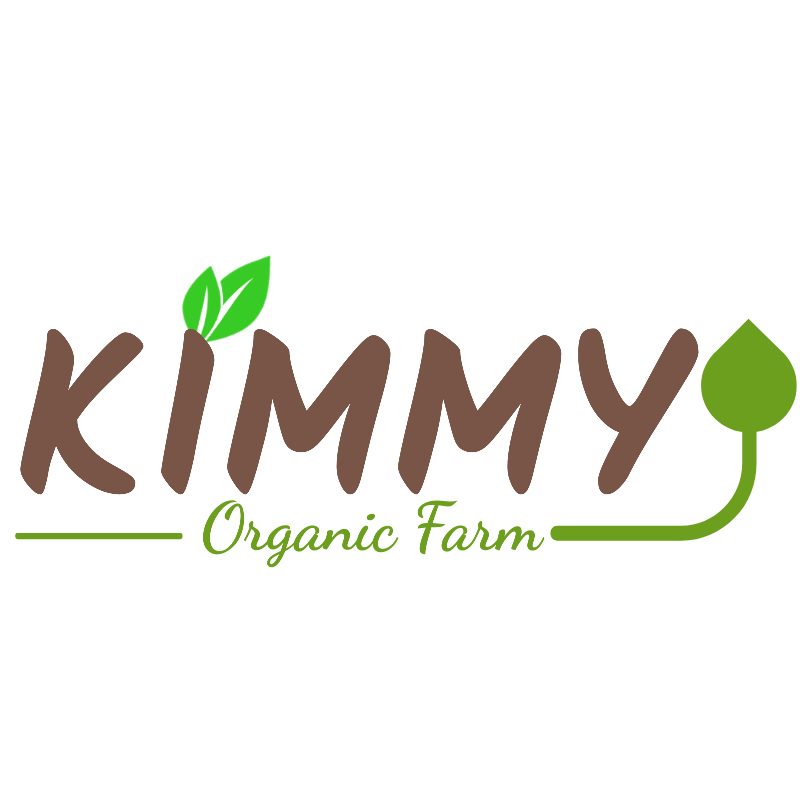
Chúng tôi là một thương hiệu chuyên sản xuất, thương mai và xuất khẩu các mặt hàng nông sản của Việt Nam. Chúng tôi có vùng trồng điều & nhà máy điều ở Bình Phước, trại nuôi ruồi lính đen ở Tây Ninh. Các mặt hàng xuất khẩu chính của Công ty là: hạt điều, hạt điều nhân, ruồi lính đen,… từ Việt Nam.

